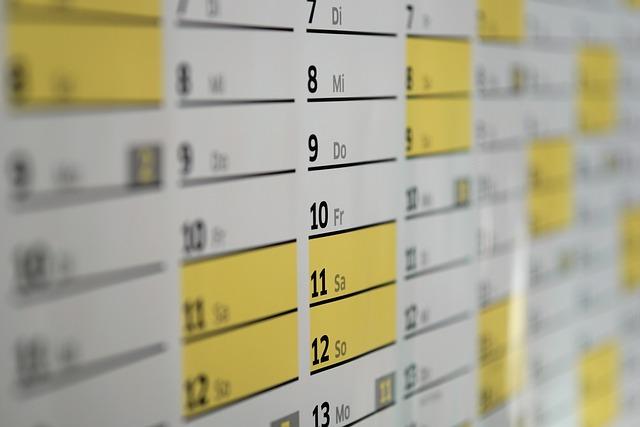Getting started with grants
Grants are a core part of research, funding everything from personnel to travel to the research itself. However, applying for and securing grant funding is not a skill you will necessarily learn until you have to do it for yourself. We have put together a small guide to help you get started with grant writing.
In this article, we’ll cover:
- Finding relevant grants
- Writing your application
- Improving your chances

Finding relevant grants
The first step is to identify the main use of the funding. Are you looking to fund a whole research project, your travel expenses to a conference, or the cost of an employee? What you plan to spend the money on will change the type of grant you apply for.
Once you’ve established what kind of grant you’re looking for, the search begins. Cast your net wide and make a list of all possible grants available to you for this project. This can be an overwhelming process, so start with the basics and then expand outwards.
- See if there are any grants available to you within your organization.
- Search for grants given out by large government institutions.
- Look into organizations related to your specific field, such as groups whose conferences you might attend, and see what they have available.
- If your organization has a research office, ask them for help.
- Contact colleagues and ask for suggestions.
You can also find grants through funding databases.
Free databases
- Grants.gov - US only
- National Science Foundation - US only
- CRDF Global - International
- National Institute of Health - US based/International
- EURAXESS - EU only
- Royal Society of New Zealand - NZ only
- Research Data Australia - Australia only
Paid databases
- Candid - International
- SPIN - International
- Pivot (Proquest) - International
- Grants Resource Centre - US only
- scientifyRESEARCH - International
- Research Connect - International
Narrow the pool
Now that you have a list of potential grants, it’s time to comb through them. Carefully read each grant’s requirements to ensure you are a viable candidate. You don’t want to spend time applying for a grant you’re not eligible for.
Rank what remains
Time is a limited resource, and writing too many applications may leave you no time for your other work. Sort through your list of viable grants and rank them based on:
- How much of your costs they will cover
- Their specificity to your work or field
- How closely your goals fit their brief
Ranking will identify which applications to prioritize, as there is often not enough time for multiple applications.
There is nothing wrong with applying to multiple funding bodies for the same research project, so long as you have the time and it is not against their requirements. If you do end up with a double-up, covering more than 100% of the project’s cost, you can easily get back in contact with the grant organizations so that they can reassign those excess funds to other applicants.
Mark your calendar
Planning ahead is key. You will need plenty of time to write and review your application before submitting it. Mark the submission dates of the grants on your calendar, and plan enough time to draft, engage colleagues in review, and rewrite based on feedback. Prioritize by rank, and stick to your schedule.

Writing the application
There is a lot of variability in the information a grant application will require. Understanding those requirements, and sticking to them, is crucial. In general, a research grant application will be expected to include:
- Details about the researchers
- A budget
- A project timeline
- A research proposal
Details about the researchers
Depending on the grant, you may need to detail the primary investigators or everyone involved in the project. At a minimum, this part of the application should include the researcher’s name, institutional affiliation, and contact information. Some grants may require the academic CV of each investigator.
Budget
You must show how you’ll use the money you’re applying for. There is usually some lee-way here, with many grants allowing a percentage of the total to remain available for discretionary activities. However, this budget should be as close as possible to the actual spending you’ll do and account for the entire amount you’ve requested.
Include everything from equipment hire or purchase, reagents, participant vouchers, researcher time, travel costs, etc., as accurately as possible - which may require you to request quotes for budget items you have not purchased before. Be prepared that some grants may require justification as to your choices, for example, why a more expensive piece of equipment is necessary due to the specific requirements of your research.
Keep it clean and simple. Use a spreadsheet template. Break it up into sections for each type of expense. You want the judging panel to be able to absorb this information quickly, so make it easy for them.
Project timeline
This is a simple timeline of what you will achieve and when you expect to achieve it.
Be realistic about what you can do within your budget and timeframe. It can be tempting to over-promise to make your application more appealing, but grant judges will generally know what a realistic timeframe looks like.
A clear and accurate timeline will show that you understand the demands of your project and can manage your time effectively.

Research proposal
This will be the most significant portion of your application. Granting bodies may have specific requirements for what to include, so be sure to focus on the areas they have highlighted and to stay within any specified word or page counts.
Start with an elevator pitch, a couple of sentences that establish what you’re doing and why it is important. You might not end up including this in the application, but forcing yourself to distill your project down can help you see it more clearly and will help you to maintain a central focus while writing the application. Everything comes back to that central focus, helping you to stay on track and avoid branching off on interesting but unnecessary tangents.
Along with addressing any specific questions within the application guidelines, your proposal should answer the following questions:
- What is your hypothesis?
- What is the significance of that hypothesis?
- What background information supports your hypothesis?
- What is your research design and methodology?
- Why did you choose these methods?
- Why are you or your team members the right people to conduct this research?
- What are your expected outcomes?
- What is the significance of this research, whether or not it supports your hypothesis?
For tips on how to keep focused on the writing process, have a look at our ‘How to Write a Scientific Paper for Publication’ blog.
Improving your chances
Ask Questions
Most organizations will have administrative staff available to answer your questions. These people are a hugely valuable resource and can give you more insight into the organization and grant process; you should contact them early in the application process if you have any questions or concerns.
Look at successful applications
Some organizations will make past successful submissions available to view. Look through the recent successful submissions, note what stands out to you, and what their success tells you about how this organization judges applications.
If you have a colleague who has successfully applied for the grant, contact them and ask them for advice. They may have some particular insights into the process now that they’ve been through it.
Collaborate
Competing with more established researchers for funding can be difficult early in your career. Some funding bodies may overlook your application if you still need to build a successful research catalog. While building your professional record, consider collaborating with a more established colleague as co-primary investigator. Learning on the job is a constant in research, and having someone with experience in your corner can make the whole process run more smoothly.
Leave nothing up to interpretation
When a grant application has specific requirements, signpost where you will address them in your research proposal. Make them into subheadings and address them specifically. Highlight them in the text. Include an appendix at the end of the application that goes through each one. Make it clear to the judges that you understand their requirements and will fulfil them to the best of your ability.
This isn’t the time for subtlety. The people judging your application will be weighing it against a stack of similar applications. They need to easily and quickly identify whether you should be excluded or stay in the running and how your proposal compares to similar proposals. Make it easy for them.
Write for the reader
Find out what kind of audience you are writing for. Even if the grant you’re applying for is specific to your area, the chances are that not everyone reading your application will be familiar with your research niche. Ensure that your research proposal is specific enough to detail what you’re doing and why, but also understandable by someone outside your area of expertise.
While you should run your applications past colleagues for review, also ask friends or family members to read it over and see if it makes sense to them. This will help you to identify areas that make sense to you, but are impenetrable to others.
Helpful Resources
How to Write a Scientific Paper for Publication »
How to Promote Your Research »
